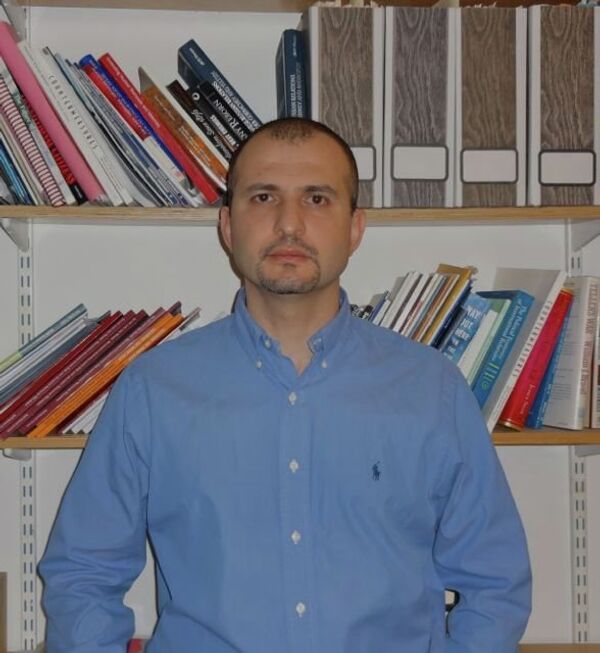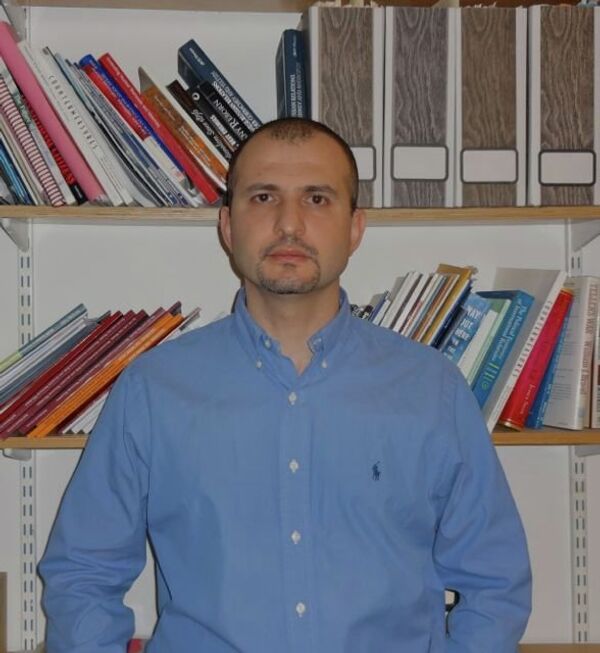The recent G-8 summit in Northern Ireland quickly became another reminder that Russia has not quite integrated into what was originally founded as a club comprising the West’s richest liberal democracies.

Post-Soviet Russia may boast the world’s sixth largest economy in terms of purchasing power parity, but it has not become a liberal democracy nor is it expected to any time soon. That does not mean, however, that Russia should leave the club, even if it continues to disagree with other members on how to tackle some of the world’s most pressing problems.
The divisions between Russia and the rest of the G-8 over Syria were apparent even before the two-day summit opened in Northern Ireland on June 16.
In fact, they were so deep that Canadian Prime Minister Stephen Harper accused the Kremlin of supporting “the thugs of the Assad regime” and made it clear he does not view Russia as a real member of the club, which was launched in 1975 as the Group of Six (G-6) and renamed the Group of Seven (G-7) when Canada joined the following year.
Speaking on the eve of the June 17-18 summit, Harper proclaimed: “I don’t think we should fool ourselves. This is the G-7 plus one. Let’s be blunt, that’s what this is: the G-7 plus one.”
Tellingly, other Western leaders attending the summit did not rush to refute Harper’s assertions, although the Canadian leader did tone down his criticism during the summit and even offered measured praise for what he interpreted as Russian President Vladimir Putin’s support for a transition to a broadly representative government in that country.
This is not the first time that a leading Western politician has claimed that Russia is not a “real” G-8 member.
While running for president in 2007-2008, Senator John McCain repeatedly called for Russia to be excluded from the club. At that time, Barack Obama’s team opposed Russia’s exclusion, but even Obama could not hide his disappointment with Putin’s position on Syria during their June 17 meeting on sidelines of the recent G-8 summit.
The two leaders launched a number of mutually beneficial initiatives in counter-terrorism, non-proliferation and economic cooperation, but agreed to disagree on ways to end bloodshed in Syria, where the death toll from the civil war that has been raging since 2011 is nearing 100,000.
The schism between Russia and the rest of G-8 on this issue at times became so wide that the Western members of the group reportedly considered adopting a resolution on Syria without the Russian leader.
Yet, when asked by a reporter if he felt “lonely” over Syria during the summit, the Russian leader said: “Of course not. That’s absolutely not true.” “Some people agreed with others, some disagreed on certain matters. But there was never a case when Russia was alone in defending its approaches to resolving the problem in Syria.”
But suppose Putin had admitted to irreconcilable differences over Syria and slammed the door on the club that his predecessor Boris Yeltsin had been invited to join in 1997, in an overture by Western leaders meant to recognize Russia’s transition from a totalitarian system and planned economy to democracy and the free market.
Weighing up all the pros and cons, would the original G-6 plus Canada have benefited from Russia’s departure? I doubt it.
It would, of course, have become easier to reach consensus decisions on international policy issues upon which Western democracies agree. But the issue of how to legitimize some of these decisions, without the support of a veto-yielding member of the UN Security Council, would still remain.
Without Russia’s involvement, G-8 initiatives designed to enhance participating nations’ security, such as the Global Partnership Against the Spread of Weapons and Materials of Mass Destruction (which, by the way, was launched when Canada hosted the summit in 2002) would have been stillborn. That said, the original G-7 members, of course, do not need permission to pursue new cooperative formats.
They could be based on shared values, such as “Democracies 10” (D-10) – which would include the United States, European Union, United Kingdom, France, Germany, Italy, Canada, Japan, Australia and South Korea – as the Eurasia Group’s David Gordon and the German Marshall Fund’s Ash Jain suggested in a recent Wall Street Journal op-ed.
However, even while arguing that Russia’s intransigence on Syria makes D-10 a necessity, Gordon and Jain concede that “addressing many issues will still require working with Russia, China and other world powers.”
A policy of co-opting rather than excluding seems to me to be a more reasonable option for the world’s remaining superpower and its allies, as the ongoing diffusion of power saps their ability to attain favorable outcomes in international affairs.
Some of America’s brightest mainstream political scientists acknowledge that the world is entering a period of uncertainty as US global supremacy nears its end. They do not see China either allying with America to form a “G-2” or becoming the new global hegemon, despite the fact that the Chinese economy is forecast to become the world’s biggest within the next 20 years. Rather, they see it as “No One’s World” or “G-Zero,” according to Charles A. Kupchan of Georgetown University and Ian Bremmer of Eurasia Group respectively.
To “avert global chaos” and form “the core of global stability” in this new world, the United States and its allies need to integrate Russia into a “greater and more vital West,” according to a recent book on structural changes in the world by Zbigniew Brzezinski – who is not known for being overly-fond of Russia.
Harvard’s Joseph Nye is less optimistic about Russia’s potential, but his recent book, entitled “the Future of Power,” urges the United States to develop and implement a smart power strategy and narrative that emphasize alliances in order to cope with the “rise of the rest.”
It seems to me that all these diverse alliances have the right to exist. Whether it is the G-8, or G-20, or BRICS, or the proposed D-10: these and other cooperative formats should be encouraged to develop (and even to compete to a certain extent) as long as they do not evolve to pose security threats to other nations.
Hopefully, some of these organizations will prove viable and effective enough, in the course of their development, that they will be able to form the building blocks of the new global architecture.
This new structure is clearly needed if we are to avoid hostile competition between the leading powers, or even outright chaos, as the post-Cold War world order undergoes profound systemic changes, the final outcome of which we have yet to fully grasp.
Simon Saradzhyan is a researcher at Harvard Kennedy School's Belfer Center. His research interests include international security, arms control,
counter-terrorism as well as political affairs in post-Soviet states and their relations with major outside powers. Prior to joining the Belfer Center in 2008 Saradzhyan had worked as deputy editor of the Moscow Times and a consultant for the United Nations and World Bank. Saradzhyan holds a graduate degree from the Harvard University.
The views expressed in this column are the author’s alone.
View From the Global Tank: Appointing Rice, Power Won’t Alter Obama’s Policy on Syria, Russia
View From the Global Tank: Missile Defense Need Not Derail US-Russian Relationship
View From the Global Tank: The Last Chance to Prevent a Mediterranean Somalia
View From the Global Tank: Boston Bombing Puts Spotlight on Security Services’ Failure to Cooperate
View From the Global Tank: Europe Ignores Collective Security System Flaws at Own Peril
View From the Global Tank: Why Nuclear Powers Should Start Walking Toward Global Zero
View From the Global Tank: Russia Needs to Develop Eastern Provinces as China Rises
View From the Global Tank: A Chinese Silver Bullet for North Korea’s Nuclear Program?
View From the Global Tank: Russia Can Shoulder Obama’s Challenges - After a BMD Deal

